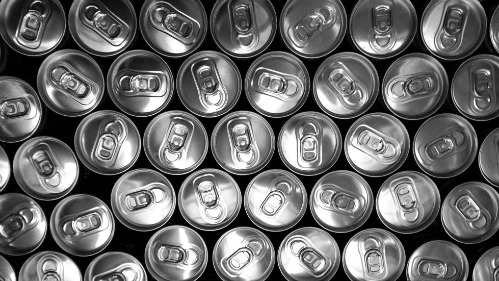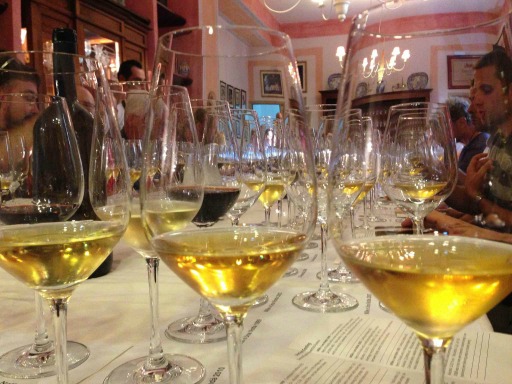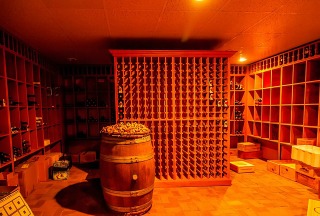| Back to Back Issues Page |
 |
|
Wine oxidation, wine cans, and other science news | Wine Tasting Tips #18 August 29, 2019 |
HelloIssue #18Wine oxidation, wine cans, and other science newsThis month I will share a true embarrassing story about wine oxidation and how a recently published sensory research helped me understand what happened at that special wine tasting dinner. Wine in a can anyone? It’s still summer in this part of the world and drinking wine from a can seems convenient for outdoor gatherings and keeping you refreshed. We will dive more into this. PLUS Other wine tasting science news. Happy Reading!
Can wine experts better identify wine oxidation as a fault than novices?My colleague and I were invited to a wine tasting dinner, hosted in one of the most famous winery restaurants of the region. A dozen of winemakers and wine journalists were seated at the dinner table, and the two of us, sensory scientists.
One of the guests had brought a bottle of Chardonnay he had produced a few years back, for everyone to enjoy with the tasting menu. As soon as I smelled the wine in my glass, I identified some honey notes and sherry-like notes; in mouth, the wine was very thin, even bitter; clearly this wine had a defect and I thought, “hmm…oxidized?” I looked at my colleague and whispered, “Isn’t it oxidized?” And she replied, softly “Yes, it is”. But it was too late to voice our perceptions as all the guests were raving on about how wonderful and pleasing this wine was. We didn’t want to be disrespectful of our host and listened to all the great qualities the others were commenting as they were tasting this aged Chardonnay.
Yes, oxidation is a wine aging character. As the wine sits in the bottle, it will slowly oxidize over time, the ambient oxygen permeating through the cork. This slow oxidation usually forms aromas imparted by compounds chemists call aldehydes. When these compounds reach high levels in the wine, they turn into wine faults. Were we too sensitive? Or was something else going on?I found some answers in the article published recently by Franco-Luesma et collaborators, entitled “Oxidation in Wine: Does Expertise Influence the Perception?”Here is the full story.
Wine in cans, anyone?A report by WIC research, released Aug 21 created some buzz in the wine media. The research objectives were to assess taste preferences of wine consumers for a same wine poured from a can or from a glass bottle, in a blind test setting. The results published tend to show only a small advantage for the bottled wine. I haven’t seen the report myself and took the account from BeverageDaily.com. 
It appears that WIC works for the can industry and this work was an attempt to demonstrate that wine quality was not impacted by the can lining. Well, Lettie Teague had a different perspective in her story published in the WSJ August 15 and entitled “A Skeptic's Guide to Wine in Cans". Not all wines can be packaged in a can. Contrarily to glass, aluminum cans are coated with a liner to protect the beverage from getting metallic notes. However, this liner can be deteriorated by the wine acidity or other compounds, and therefore release off-notes. Additionally, drinking from a can removes our ability to smell and appreciate the aromas. That’s probably because most of the wines in a can are fizzy and sweet to create this connection to aromatics. Wine in cans drinkers like wine very cold, which a can can certainly deliver, and only certain wine styles can produce enjoyment when chilled. Like every novelty, wine in cans have their place in the consumer consideration set. They may be convenient, refreshing for certain occasions but not all.
Other Wine Tasting Science NewsVirtual winery visit while wine shoppingUsing near field communication enables consumers to access information about the wine on the shelf by tapping their mobile device on the bottle cap (after downloading the app of course).READ this article. Taste machineIBM built a robotic tongue to taste test hazardous chemicals. But first, they taught it to recognize mineral water. And maybe one day, it will be wine.
My 2 Wine Tasting Tips#1: Wine oxidation is not that bad #2: Experiment with wine in cans References used in this issueErnesto Franco-Luesma, Carole Honoré-Chedozeau, Jordi Ballester, Dominique Valentin. 2019. Oxidation in Wine: Does Expertise Influence the Perception?,LWT, Volume 116,2019, 108511.WIC Research-Wine in cans versus bottles. A Skeptic’s Guide to Wine in Cans.
Feedback is a gift. So please let me know if this newsletter brings you valuable tips, or not, by filling out this survey. Thank You!
Share the Love and Stay in TouchThank you for taking the time to read this issue. If you liked this issue of Wine Tasting Tips, don't forget to forward it to your friends, family and colleagues. If a friend DID forward this to you and if you like what you read, don't spare a minute and Subscribe Today Wine Tasting Tips is written and published by I. Lesschaeve at InnoVinum. Are you on social media? Find me on Facebook and Twitter.Cheers! Isabelle
|
| Back to Back Issues Page |


